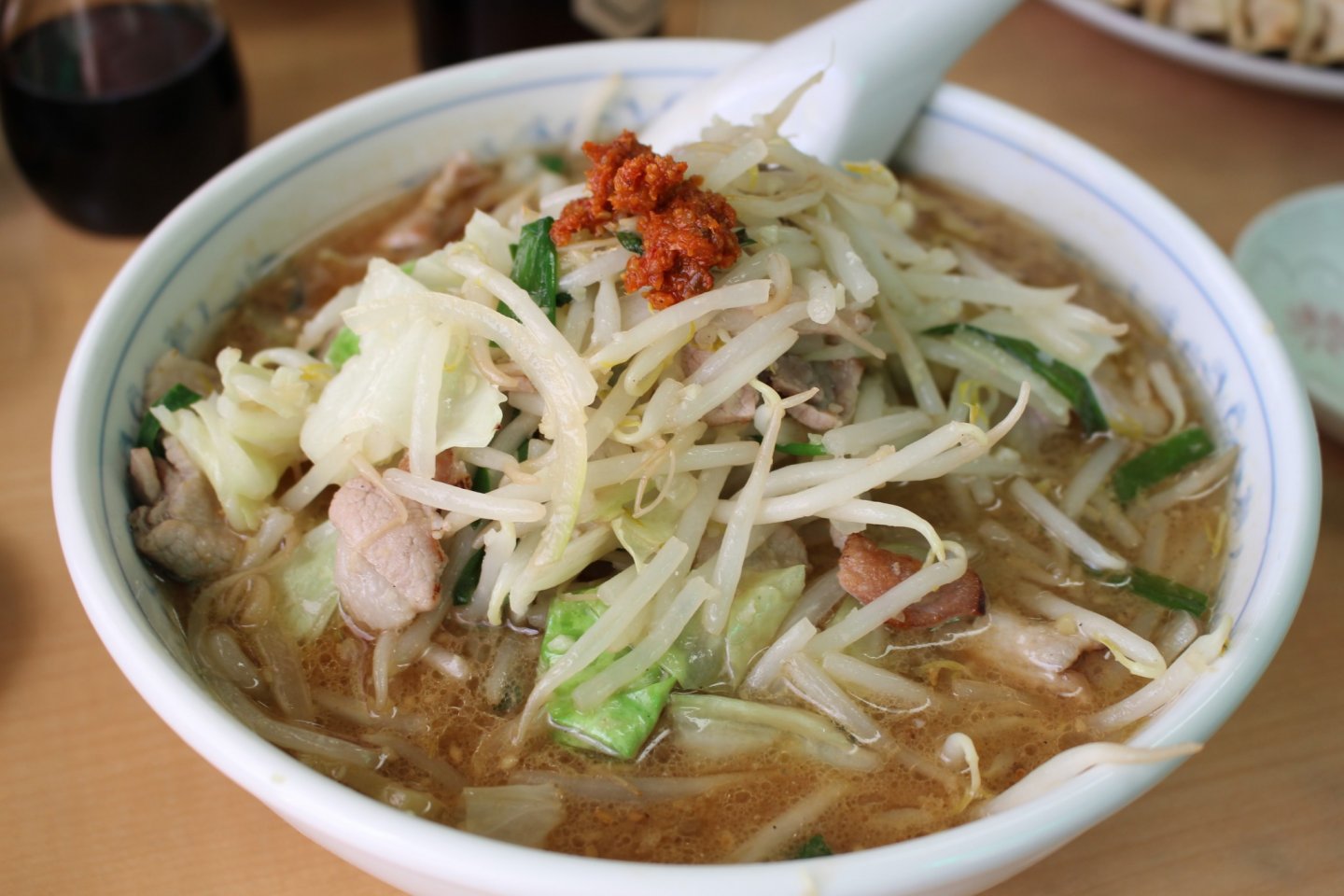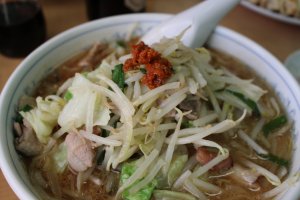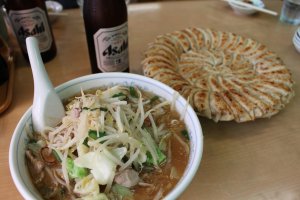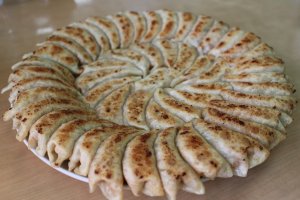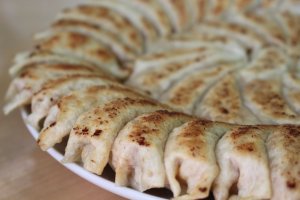When you think of Fukushima ramen, the Kitakata area springs to mind first, famous for its pork/niboshi broth and thick/flat noodles. However, those not venturing to the north-west of the prefecture can still find good ramen elsewhere – with Fukushima City itself home to a few secrets to discover. On a recent tour of the Shimogo and Aizu-Wakamatsu region, my homeward journey took me through the capital allowing me to try one of their local staples.
Whilst waiting to catch a glimpse of the summer's Waraji Festival before returning to Tokyo, we took a late lunch at Ishikari Ramen (らーめん石狩). Ramen always draws me to a place, but I was actually primarily here for the 'enban', or disc-shaped, gyoza, a local specialty unique to Fukushima City.
The gyoza dumplings are circularly arranged, cooked then served together in one giant serving. It's a visual spectacle, but the crispy dumplings taste great too, and go so perfectly with beer. This might explain why enban gyoza places typically open in the evenings only – with my tight schedule, that meant visiting Ishikari which bucks the trend and opens at 11am anyway.
Ishikari offers portions of 10, 20, 30 or 50 gyoza dumplings. As a group of 4 we took on 50 (3,000 yen) – which still felt like a colossal undertaking alongside a bowl of ramen too:

Of course, the ramen here was impressive too – but like the gyoza, a lot to get through and reminiscent of your average bowl at Jiro, without too much of a distinctive signature selling point for me. I tried the Ishikari Karami Miso Ramen (900 yen), which is the store's most popular bowl, with its homemade spicy sauce and plenty of veg.

Enban gyoza shops have popped up all over the central area – if staying overnight, you might have time to try the most famous ones including: Manpuku (満腹) (allegedly the home of Fukushima gyoza), Kawatori (川鳥), Koharu (こはる) and Gyoza no Terui (餃子の照井).
